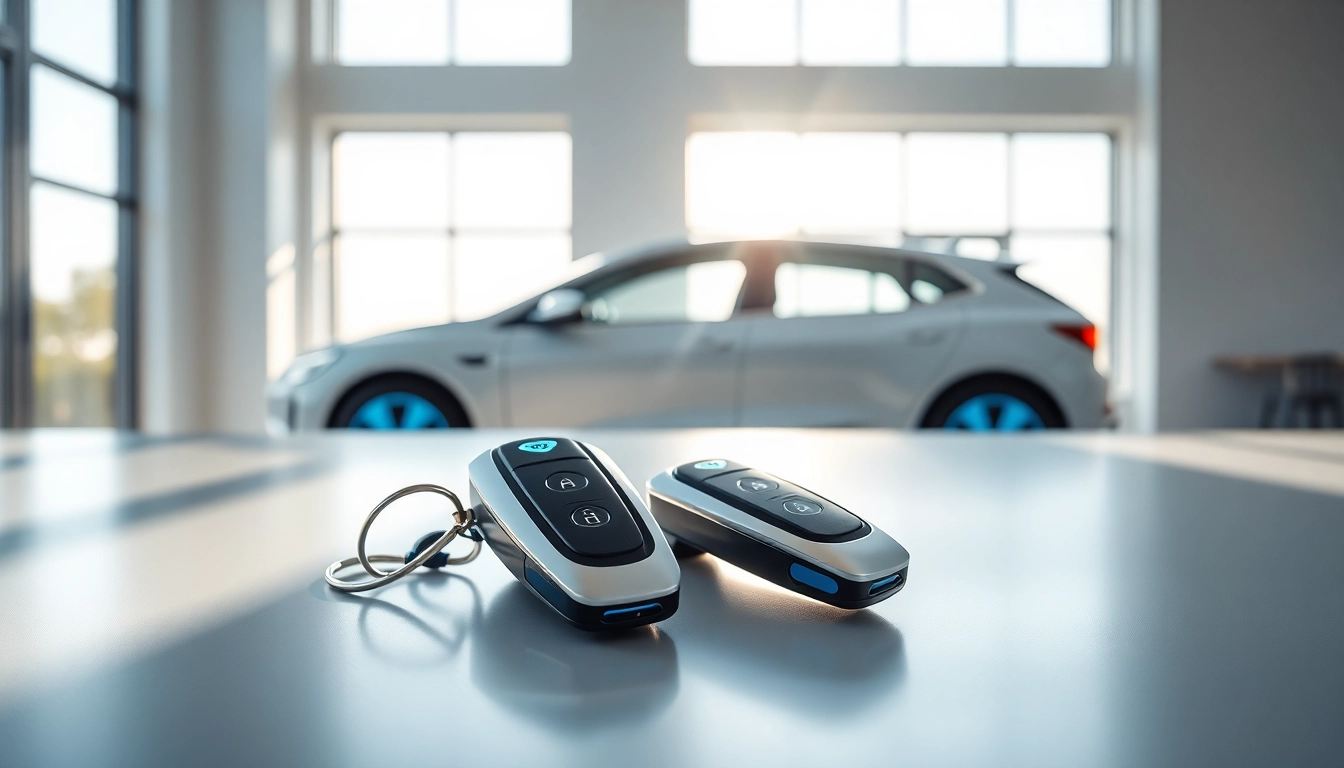Essential Guide to Keys for Electric Cars: Understanding the Latest in Vehicle Access Technology
Introduction to Keys for Electric Cars
As electric vehicles (EVs) become increasingly popular, one vital aspect that often goes overlooked is the technology that underpins their operation: the keys. Keys for electric cars are not merely functional; they embody a leap in automotive access technology, integrating digital communication, security features, and user-friendly interfaces. Understanding these keys is essential for anyone considering the transition to electric driving or looking to enhance their EV experience.
What Are Electric Car Keys?
Electric car keys represent a modern evolution of traditional automotive keys. While older vehicles typically utilize metal keys or basic remotes, electric vehicle keys often incorporate more advanced technologies, such as key fobs, smartphone applications, and digital keys. This transformation allows for features such as proximity access, remote start capabilities, and seamless functionality with accompanying applications.
Why Are They Different from Traditional Keys?
The primary difference between electric car keys and traditional ones lies in the technology used to operate them. Traditional keys and remotes rely on mechanical locks and simple radio frequency communication. In contrast, electric car keys often employ smartphones, enabling functionalities like tracking vehicle location, sending commands remotely, and integrating GPS navigation. This shift not only enhances convenience but also considerably improves vehicle security and accessibility.
The Importance of Key Technology in EVs
The efficient operation of electric vehicles hinges on sophisticated key technology. Modern electric cars can use digital encryption to ensure secure access, preventing unauthorized entry and enhancing overall vehicle safety. Furthermore, with the integration of emerging technologies like biometric verification and smartphone applications, EV keys are designed to provide minimal friction for users while maximizing security. The growing reliance on this technology also reflects a broader trend towards digital interfaces in our daily interactions, including how we engage with our vehicles.
Types of Keys for Electric Cars
Key Fobs: Features and Functionality
Key fobs have become the standard for accessing electric vehicles. These compact devices offer features such as remote locking/unlocking, remote starting, and even keyless entry. Through secure communication links, they ensure that only the registered user has access to the car. Some key fobs even feature integrated batteries and various alerts for security purposes, such as motion detection alarms.
Smartphone Integration and Digital Keys
Smartphone integration represents a significant advance in key technology for electric vehicles. Rather than relying solely on physical key fobs, many manufacturers now enable drivers to unlock and start their EVs via dedicated smartphone applications. This digital key technology can also store multiple keys for different vehicles and provide functionalities like remote climate control and vehicle tracking. Such integration bridges the gap between our digital lives and our automotive experiences, redefining how we interact with our vehicles.
Traditional vs. Modern Key Concepts
When comparing traditional and modern key systems, several differences emerge. Traditional keys are often limited in functionality and may require physical manipulation to operate locks. In contrast, modern keys, particularly for electric cars, provide a plethora of features designed for enhanced convenience and security. The transition represents not just a change in tools but a shift in mindset toward more efficient and user-friendly vehicle modalities.
How to Choose the Right Key for Your Electric Car
Evaluating Key Features and Compatibility
Choosing the right key for an electric car requires a comprehensive understanding of the vehicle’s existing systems and available technologies. Features such as remote start, lock/unlock capabilities, and smartphone compatibility should be prioritized. It’s also imperative to evaluate compatibility with the specific make and model of the vehicle, as not all keys can seamlessly integrate into every electric vehicle.
Cost Considerations and Budgeting
Understanding the cost associated with electric car keys is crucial for budget planning. While traditional keys can be relatively inexpensive, advanced features in electric car keys may come with higher price tags due to the technology involved. Replacement costs can also vary based on the complexity of the key’s technology. It’s advisable to assess potential long-term costs, including battery replacements for key fobs or subscription services linked to smartphone commands.
Expert Recommendations for Users
Experts suggest conducting thorough research before selecting key solutions for electric vehicles. Consulting manufacturer specifications, reading reviews, and seeking feedback from current EV owners can provide invaluable insights. Additionally, working with professionals specializing in electric vehicle technology can help ensure that the chosen key system aligns well with the owner’s preferences and offers optimal functionality.
Key Security Tips for Electric Car Owners
Understanding Key Security Risks
As electric cars gain popularity, understanding potential security risks associated with their keys becomes paramount. Keyless entry systems can be susceptible to relay attacks, where criminals use devices to capture signals from key fobs that are not properly shielded. This risk underscores the importance of robust security measures in protecting one’s vehicle.
Best Practices for Keeping Your Keys Safe
Implementing best practices can significantly enhance the security of electric car keys. Owners should avoid leaving keys in easily accessible areas and consider using secure storage solutions. Using RFID-blocking pouches for key fobs can further reduce the risk of signal capture. Additionally, opting for multi-factor authentication via smartphone applications adds a valuable security layer, ensuring that keyless access cannot be easily compromised.
Upgrading Key Security Systems
With the rapidly evolving landscape of automotive technology, considering an upgrade to a more sophisticated security system is wise for electric car owners. Options such as biometric systems, GPS tracking, and advanced encryption methods can significantly enhance vehicle security. Regularly updating software and firmware related to key systems can also safeguard against emerging threats and vulnerabilities.
The Future of Keys for Electric Cars
Emerging Technologies in Key Design
As automotive technology continues to advance, the design of keys for electric vehicles is also evolving. Future developments may include holographic keys, embedded sensors, and advanced biometrics that can read multiple forms of identification for enhanced security. These innovations promise to enhance not only the user experience but also the overall safety of electric vehicles.
The Role of Biometrics and Smart Tech
Biometric technology stands to revolutionize how electric cars are accessed. Future keys may incorporate fingerprint scanning, retina recognition, or facial recognition to unlock and start vehicles. This level of personalization ensures that only the designated user can access their car, offering unmatched security and convenience.
Predictions for Key Innovations in the Next Decade
Industry experts predict that as electric vehicles become more prevalent, innovations in key technology will accelerate. We may witness the introduction of fully autonomous key systems that eliminate the need for physical keys altogether, relying completely on smartphone technologies or biometric data. Enhanced data analytics may also emerge, allowing key systems to learn and adapt to user behavior for increased efficiency and safety.














Post Comment